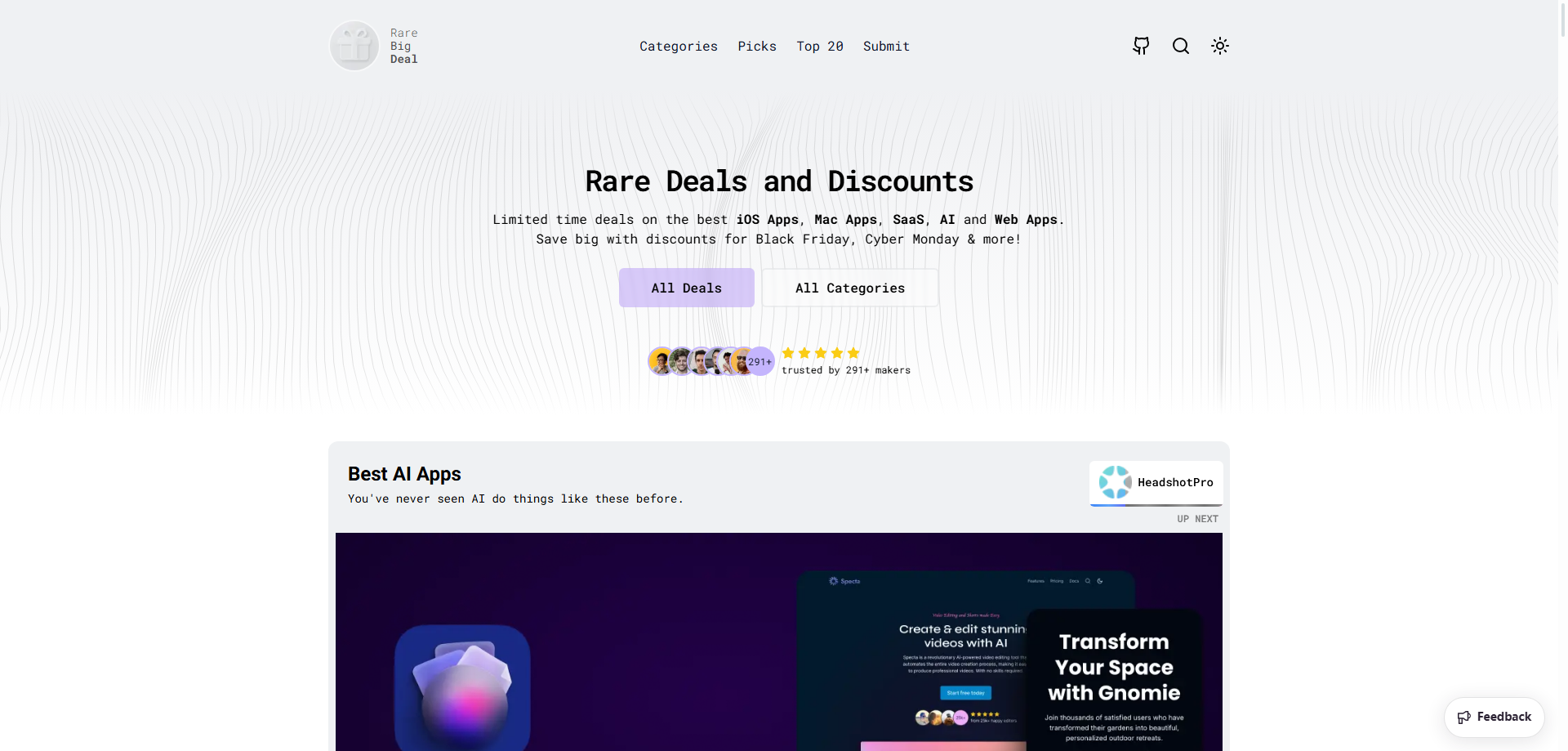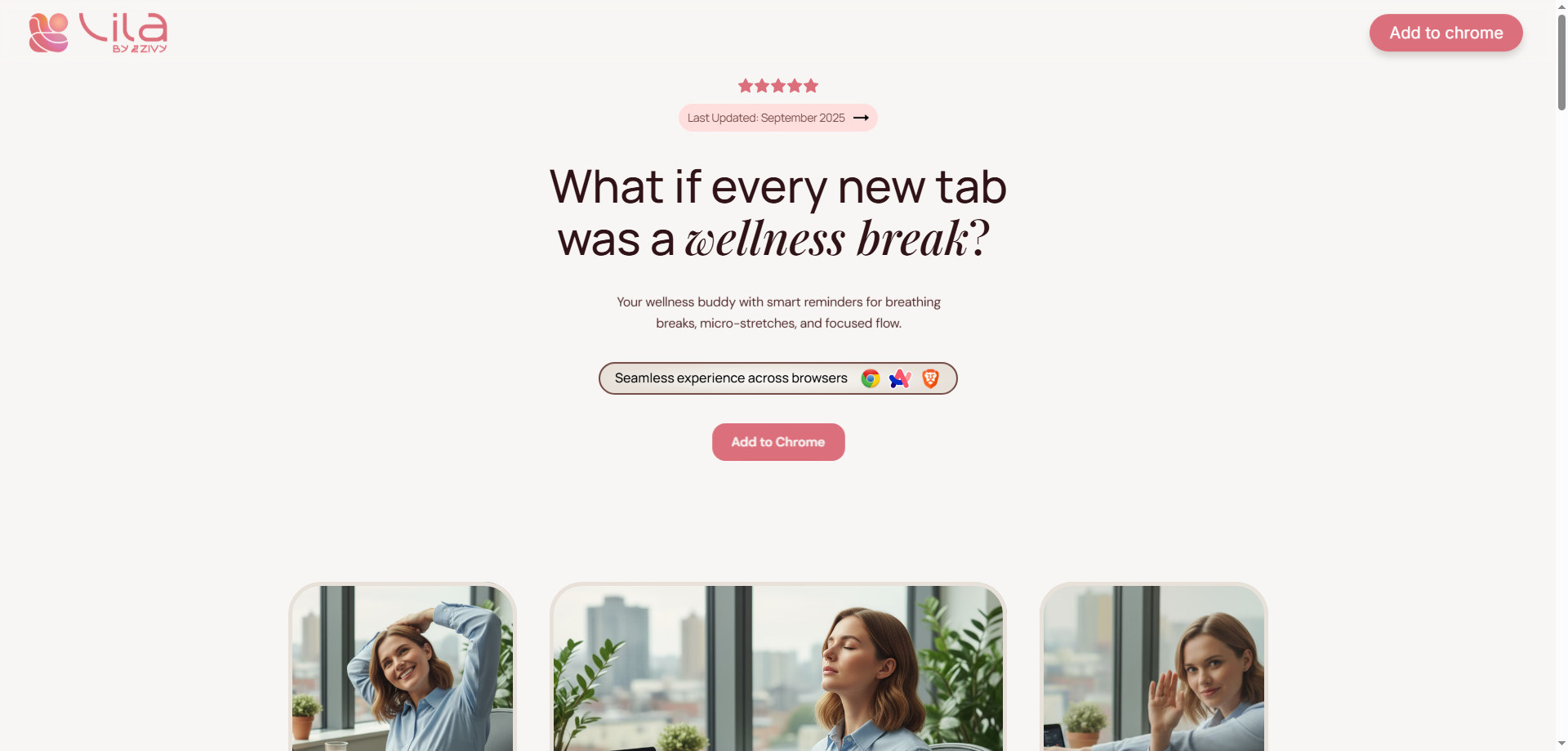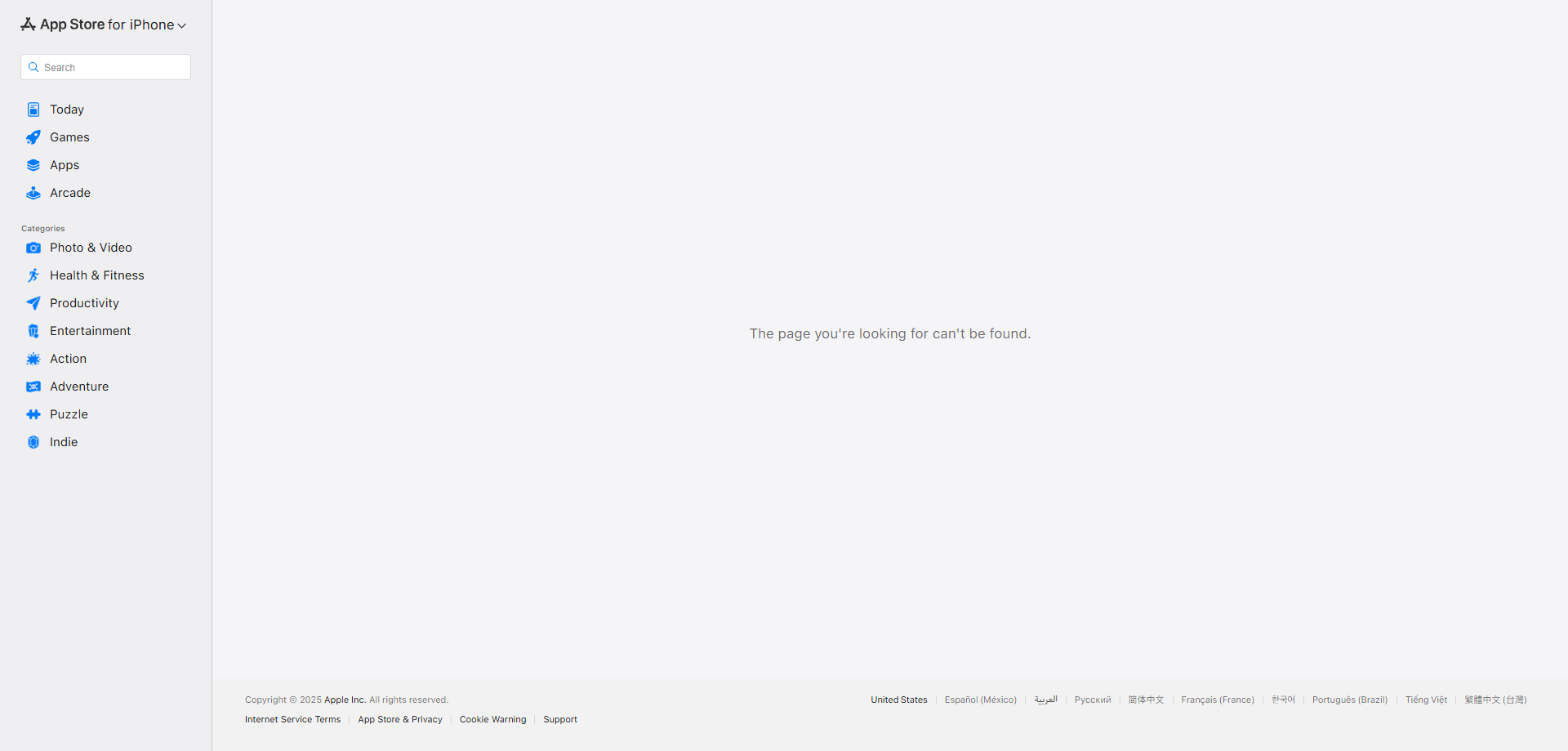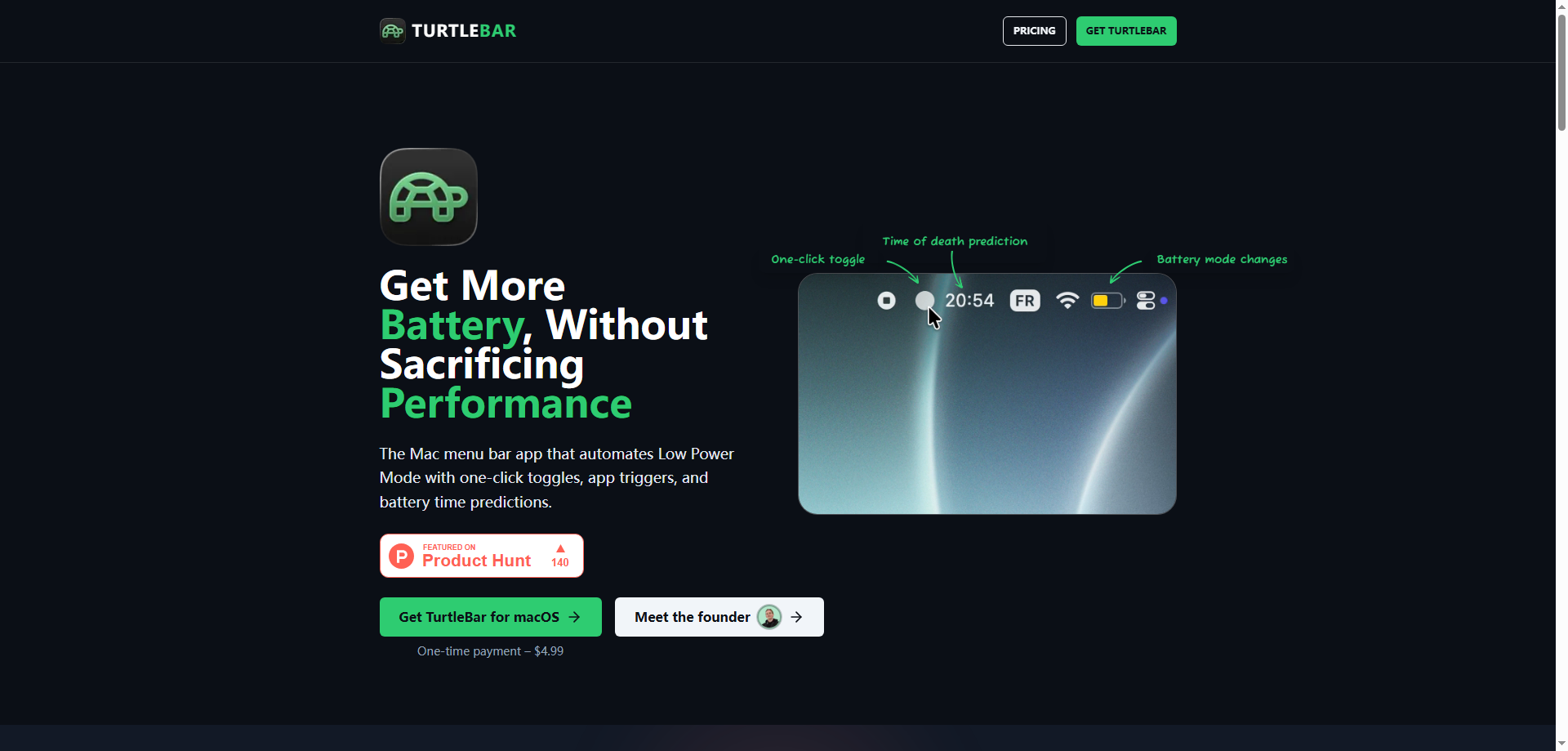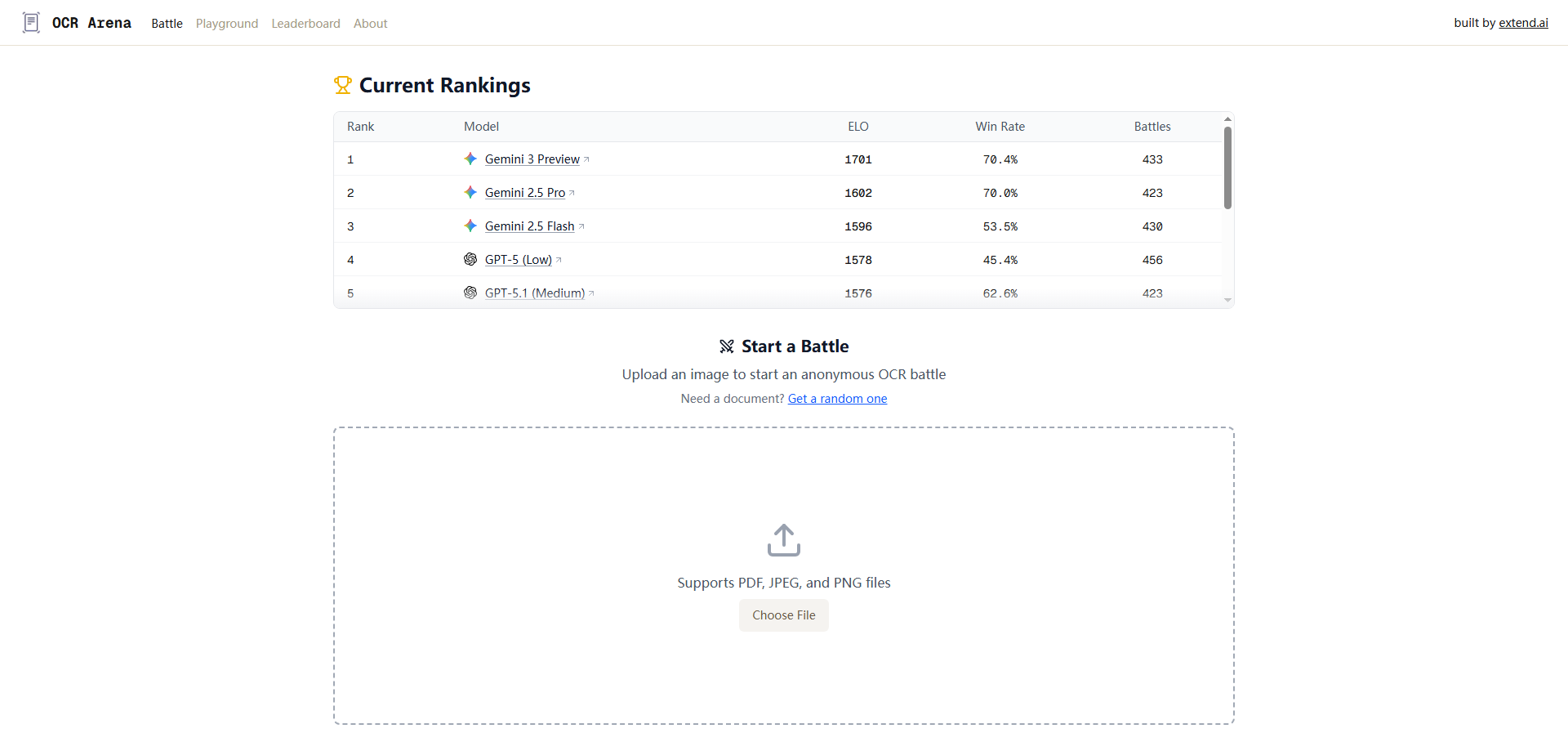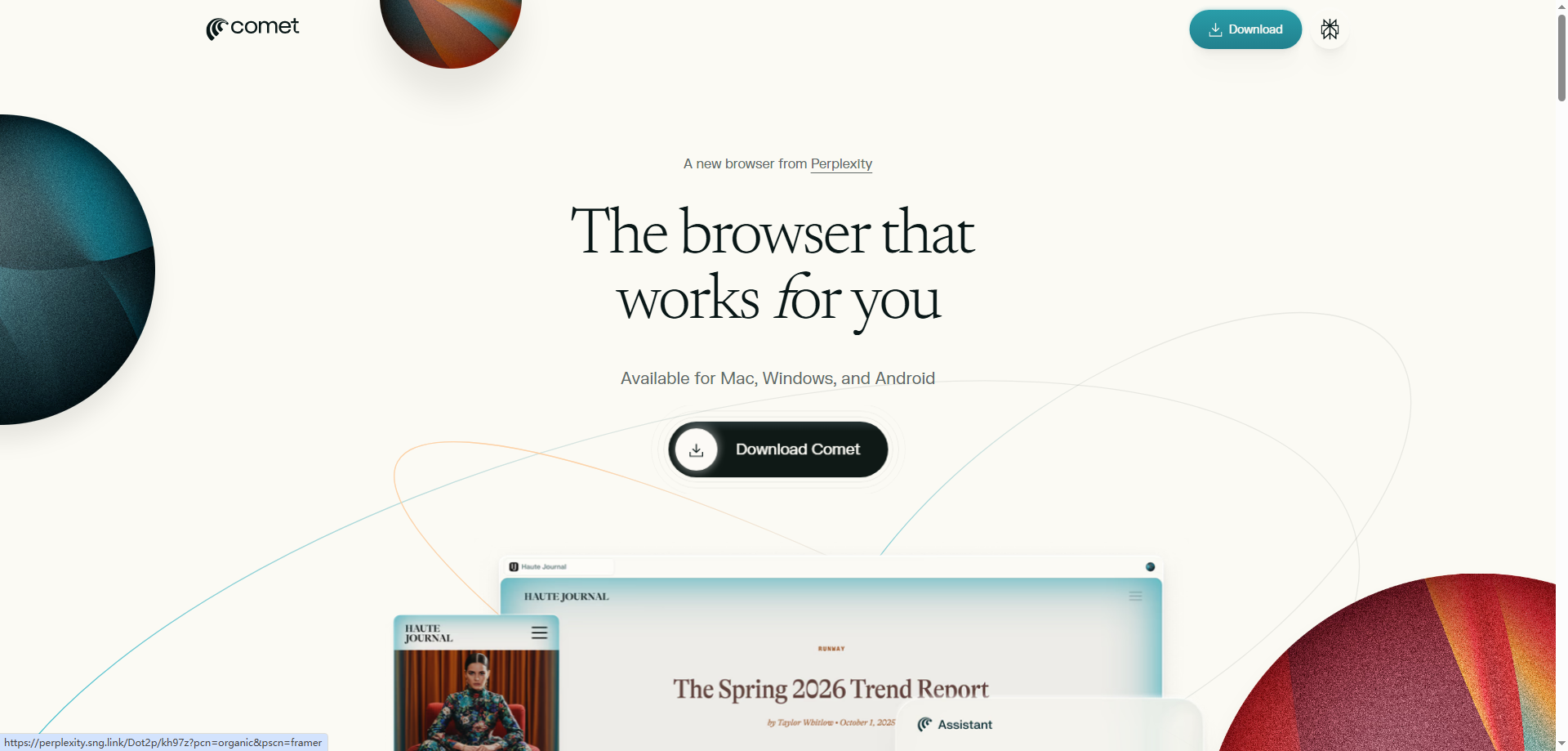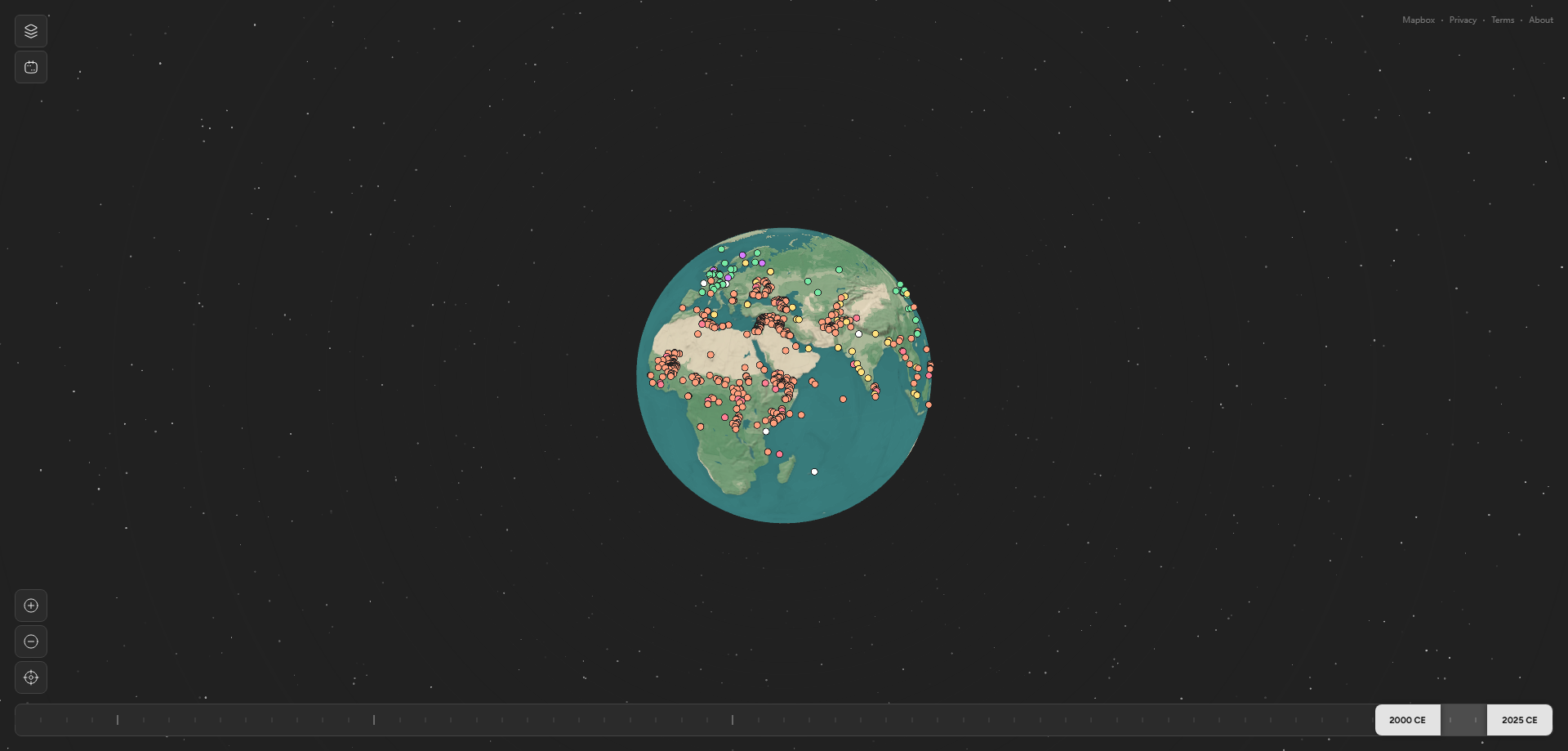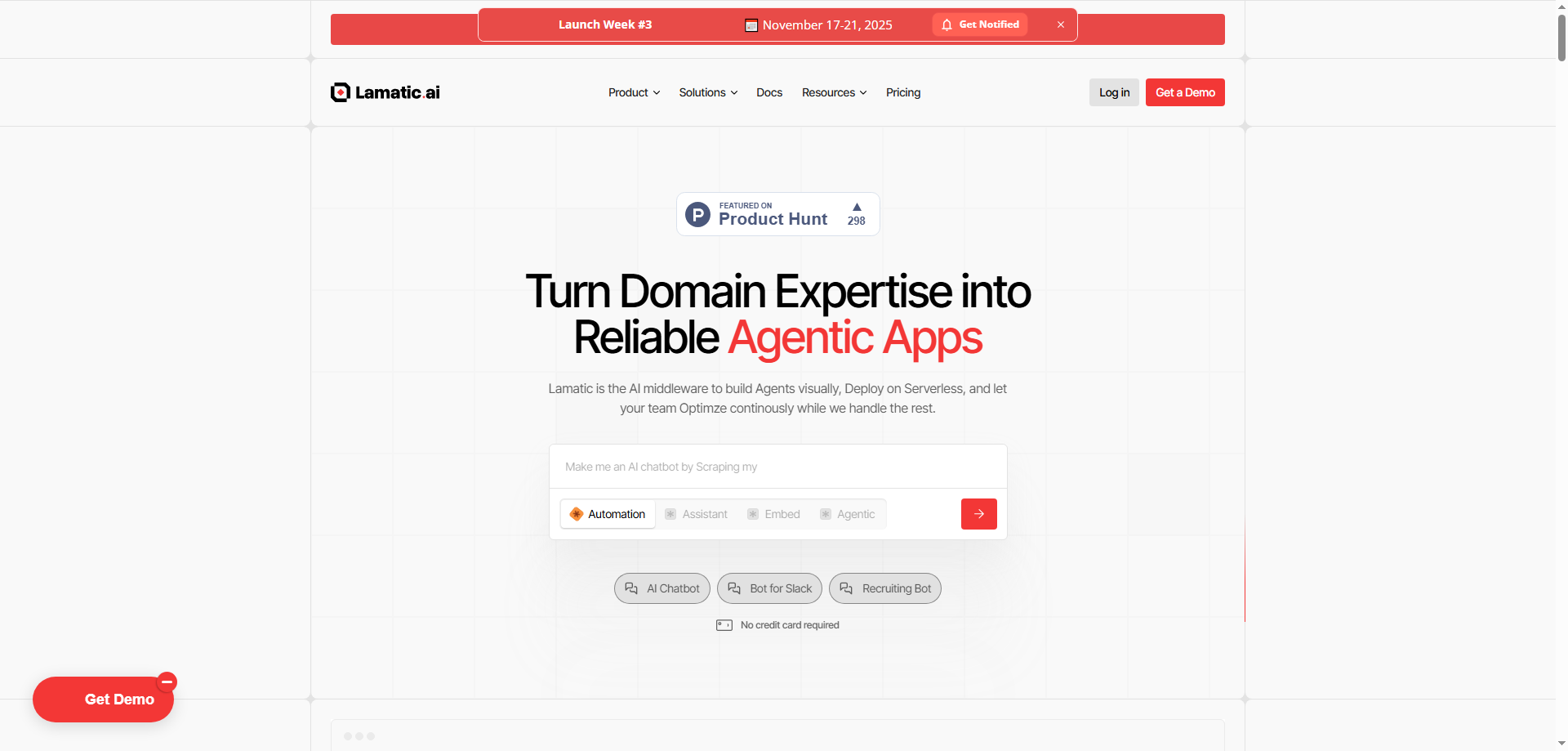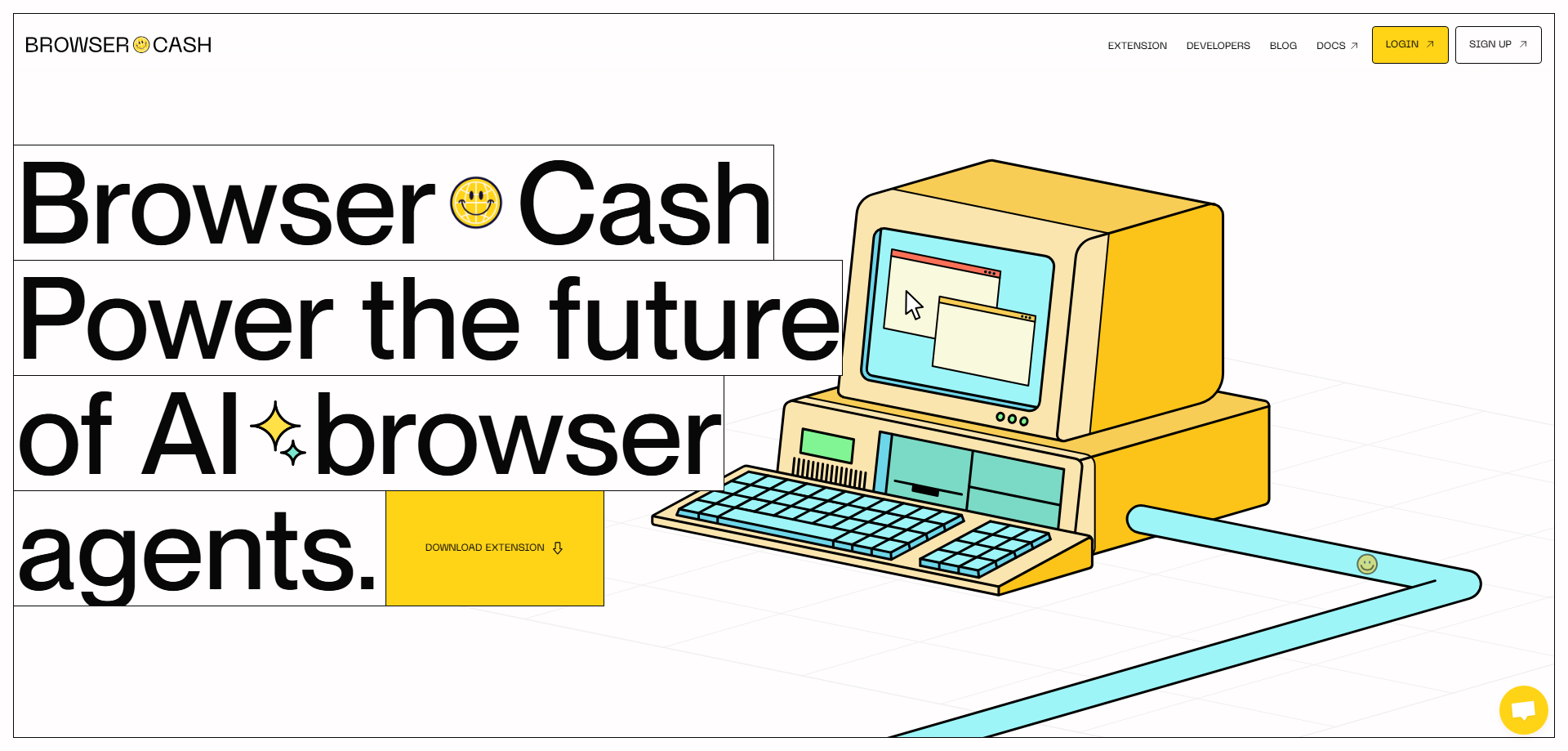The Creative Spark: Why RBD Matters in a World of Corporate Apps
You know what? I'm tired. I'm tired of opening my phone and seeing the same big-name apps everywhere. Facebook, Google, Microsoft—don't get me wrong, these are great companies, but where's the diversity? Where are the scrappy indie developers who pour their hearts into building something different?
That's exactly why RBD caught my attention. The creative premise here is beautifully simple: give independent developers a stage. That's it. No complicated algorithm, no venture capital pressure to scale at all costs—just a genuine celebration of what solo developers and small teams can build.
What I love about the creative vision behind RBD is that it's fighting against invisibility. The app store ecosystem has become brutal for indie developers. Your beautiful, thoughtfully-crafted app gets buried under marketing budgets and ASO optimization from big players. RBD is basically saying, "Screw that—let's create a space where quality and craftsmanship matter more than marketing spend."
The open-source angle is particularly creative. In a world where everyone's trying to build moats and lock in users, RBD is championing transparency and collaboration. They're not just showcasing apps; they're showcasing the philosophy that sharing knowledge and code makes everyone better. That's a bold creative statement in today's competitive tech landscape.
I also appreciate how RBD frames itself as a "salute to indie developers." It's not positioning itself as just another app directory or discovery platform. It's positioning as a community and a movement. That's smart creative positioning because it taps into something emotional—the underdog story that we all root for.
The showcase concept itself is creative because it's curated. We have thousands of app stores and directories already, but they're overwhelming. RBD is saying, "Let us show you the best of what independent creators are building." That curation creates value in an age of infinite choice and decision fatigue.
When I browse through RBD, I'm not just looking at apps—I'm looking at stories. Each application represents someone's nights and weekends, their passion project, maybe even their dream of going full-time indie. That narrative layer makes the discovery process more meaningful than just scrolling through a generic app store.
The community aspect is where the creativity really shines for me. RBD isn't just a one-way broadcast platform where developers dump their apps and hope for downloads. It's creating spaces for developers to connect, collaborate, learn from each other. I've seen so many developer communities turn toxic or corporate-sponsored, but RBD feels grassroots and authentic.
What's particularly clever is how RBD bridges the gap between developers and users. Most platforms cater to one side or the other. RBD is saying, "Users, come discover amazing apps you've never heard of. Developers, come share your work and connect with appreciative users." That two-sided value proposition is creative and potentially powerful.
The "hidden gems" positioning is also smart. Everyone loves feeling like they discovered something before it went mainstream. RBD is tapping into that hipster discovery instinct that drives early adoption and word-of-mouth. When I tell my developer friends about a cool app I found on RBD, I feel like I'm sharing insider knowledge.
Can RBD Disrupt the App Discovery Ecosystem? Let's Be Real
Okay, disruption time. Can RBD actually change how we discover and use apps? Or is it just a nice idea that'll fade into obscurity like countless other developer communities?
First, let's look at what RBD is competing against. On one side, you've got the official app stores—Apple App Store, Google Play Store. These are monoliths with billions of users and deeply embedded in our phone operating systems. On the other side, you've got discovery platforms like Product Hunt, Hacker News, Reddit communities, and tech media outlets.
Can RBD replace app stores? No, obviously not. App stores handle distribution, payments, and updates. RBD isn't trying to be that. But can it replace Product Hunt for indie app discovery? That's more interesting.
Product Hunt has become kind of a victim of its own success. It's now dominated by well-funded startups with launch strategies and marketing teams. The scrappy indie developer with no marketing budget gets drowned out. RBD could carve out a niche by being explicitly focused on indie and open-source projects, creating a space where those projects actually have a fighting chance.
I think the real disruption potential is in community-driven curation. Right now, app discovery is algorithmic (app stores) or hype-driven (Product Hunt, tech media). RBD could offer something different: taste-driven curation by developers for developers and tech enthusiasts. That's a different value proposition.
Where I see genuine disruption happening is in developer networking and collaboration. LinkedIn is too corporate and generic. GitHub is great for code but not for building personal connections and storytelling. Twitter/X is chaotic. RBD could become the place where indie developers actually connect meaningfully.
But here's where I get skeptical about disruption: network effects are brutal. RBD needs critical mass on both sides—developers sharing projects and users discovering apps. Without enough developers, users won't come. Without enough users, developers won't bother. Breaking that chicken-and-egg problem is incredibly hard.
The open-source focus could be both a strength and limitation. It aligns with developer values and creates authentic community vibes. But it also potentially limits the addressable market. Not all great indie apps are open source. If RBD becomes too dogmatic about open source, they might alienate talented developers who want to build sustainable businesses with proprietary code.
Could RBD replace communities like Indie Hackers? Maybe, but Indie Hackers has a head start and is focused on the business side of indie development. RBD seems more focused on the product/technical side. There's room for both, but head-to-head competition would be tough.
I think the most likely disruption scenario is niche domination rather than broad market replacement. RBD becomes the place for a specific type of developer (indie, open-source-friendly, community-oriented) and a specific type of user (tech enthusiasts who value craftsmanship over polish). That's big enough to matter without needing to replace everything else.
My verdict on disruption: RBD won't kill existing platforms, but it could create a valuable new category—authentic indie developer community and showcase. That's disruptive enough if they can pull it off.
Will Developers and Users Actually Use This? The Acceptance Question
Here's the million-dollar question: will people actually use RBD? I've seen too many "community for X" platforms launch with enthusiasm and die with a whimper when nobody shows up after launch week.
Let's start with developers. Will indie developers actually post their projects on RBD? I think the answer is cautiously yes, but with important caveats.
The 335 upvotes and 34 discussions on Product Hunt suggest there's genuine interest. Developers are clearly paying attention. But upvoting and actually using are different things. The key question is: does RBD provide enough value to justify the time investment of creating a showcase?
For developers, the value proposition is exposure and community. If I'm an indie developer, I'm already posting on Product Hunt, Hacker News, maybe Reddit. Am I going to add RBD to that list? Only if I see real user engagement and meaningful connections happening there.
The open-source angle helps with developer adoption. Open-source developers tend to be community-minded and willing to contribute to platforms that support the ecosystem. If RBD positions itself as the home for open-source indie projects, they could build a loyal core community relatively quickly.
What worries me about developer acceptance is maintenance fatigue. Developers already maintain their GitHub repos, their product websites, maybe a blog, social media. Adding another platform to maintain could feel like just more work. RBD needs to make the maintenance burden minimal—maybe auto-syncing with GitHub or making it dead simple to update.
Now let's talk about users—the people discovering apps. Will regular folks actually come to RBD to find apps? This is trickier.
Tech enthusiasts and early adopters will definitely check it out. People like me who are always hunting for interesting new tools and love supporting indie creators—we're the obvious audience. But that's a limited market. For RBD to really succeed, it needs to reach beyond the tech bubble.
The "hidden gems" framing helps with user acceptance. Everyone wants to feel like they're discovering something special before it goes mainstream. If RBD can deliver on that promise—consistently showcasing genuinely great apps that aren't widely known yet—word of mouth could drive serious traffic.
The community aspect might actually be more valuable for users than we think. Being able to talk directly with developers, ask questions, suggest features—that's a relationship you can't get downloading from the App Store. If RBD facilitates those connections, users might stick around not just for discovery but for the community experience.
One concern: user trust. If I'm downloading apps, I want to know they're safe, maintained, and not going to be abandoned in six months. How does RBD signal quality and trustworthiness? The curation helps, but they need some verification or quality standards to build user confidence.
Platform habits are hard to change. Most people have their go-to places for discovering apps—friends' recommendations, tech blogs, app store featured sections. Convincing people to add RBD to their discovery routine requires either superior content or making it so easy that there's no friction.
I think the path to user acceptance runs through developers. If developers actively promote their RBD showcases, driving their existing audiences to the platform, that brings users in. But RBD can't just be passive infrastructure—they need to actively drive traffic and create reasons for users to return regularly.
My take: Developer acceptance will be moderate in year one, concentrated among open-source and community-oriented indie devs. User acceptance will be slower but could build momentum if the quality of showcased apps is consistently high and the community feels vibrant.
Survival Rating: 3/5 Stars - The Honest Truth About RBD's Future
Alright, truth time. Will RBD still be around and thriving twelve months from now? I'm giving it 3 out of 5 stars for survival probability. Let me explain exactly why it's in the middle—not doomed, but not guaranteed either.
Why Not Higher?
The community platform graveyard is absolutely massive. I've seen dozens of "community for developers" platforms launch with excitement and quietly shut down within a year or two. Building sustainable communities is brutally hard, and most fail.
The biggest risk I see is the cold start problem. RBD needs both developers and users to participate for the platform to be valuable. But developers won't come without users, and users won't come without great content from developers. Breaking that deadlock requires significant effort and probably marketing spend.
Monetization is a huge question mark. The product description doesn't mention how RBD makes money. Are they planning to charge developers for featured placements? Take a commission on sales? Run ads? Community platforms need sustainable business models, and I don't see one clearly articulated yet. Without revenue, it's just burning runway.
Competition from established platforms is real. Product Hunt could easily add an "indie" or "open source" filter and address much of RBD's value proposition. GitHub could enhance their project showcasing features. If bigger platforms see RBD gaining traction, they could quickly copy the good ideas.
The open-source positioning, while authentic, might limit growth. A significant portion of great indie apps are not open source—developers want to build sustainable businesses. If RBD is too dogmatic about open source, they're excluding a huge segment of potential high-quality content.
Why Not Lower?
Despite these risks, I'm not bearish on RBD. There's genuine market need for what they're building. Indie developers really are underserved by existing platforms, and users really do want to discover apps beyond what Apple and Google push.
The 335 upvotes with 34 discussions shows decent validation. That discussion-to-vote ratio (about 10%) is actually pretty healthy—it means people are engaging deeply, not just casually upvoting. That's a good sign for potential community health.
The timing is right. We're seeing a broader cultural pushback against big tech monopolies. People are increasingly interested in supporting independent creators across all media—music, games, software. RBD is riding that wave.
The founder passion matters. Building a community platform requires sustained commitment beyond just the initial launch. If the RBD team is genuinely passionate about supporting indie developers (and the positioning suggests they are), they'll push through the hard middle period when growth slows and enthusiasm wanes.
Critical Risks to Watch:
-
Community ghosting: If developers post their projects and get no meaningful engagement, they won't come back. The first 90 days are critical for establishing interaction patterns.
-
Quality control: If low-quality or spam projects start appearing, it degrades the browsing experience and drives users away. Curation at scale is challenging.
-
Monetization missteps: However they plan to make money, getting the model wrong could alienate the community or prove unsustainable.
-
Platform competition: Bigger platforms adding similar features could make RBD redundant before it reaches escape velocity.
-
Founder burnout: Running community platforms is exhausting. If the team burns out or moves on to other things, the platform dies.
Major Opportunities Ahead:
-
Open-source community embrace: If major open-source projects start using RBD as their showcase, that brings legitimacy and users.
-
Developer influencer partnerships: Getting respected indie developers to actively participate and promote RBD could drive massive organic growth.
-
Media coverage: A few well-placed articles in tech media about "hidden gems on RBD" could drive significant traffic spikes.
-
Platform partnerships: Integrating with GitHub, Product Hunt, or other developer tools could reduce friction and increase utility.
-
Event/community programming: Virtual or in-person events, hackathons, or showcases could deepen engagement beyond the platform itself.
What Would Increase My Rating:
I'd bump this to 4+ stars if I see these within six months:
- Clear evidence of sustained user and developer activity (not just launch spike)
- Articulated, reasonable business model that respects the community
- At least 3-5 breakout app success stories attributable to RBD
- Integration with one or more major developer platforms
- Active, healthy community discussions (not just promotional posts)
My Honest Prediction:
I think RBD will survive the next twelve months, but it'll be a struggle. The team will probably face a few "is this worth it?" moments around months 3-6 when the launch excitement fades and they're grinding to build genuine community.
Most likely scenario: RBD becomes a small but meaningful community for a specific subset of developers—probably the open-source-first, community-oriented indie crowd. It doesn't become massive, but it doesn't need to. A few thousand active community members would be success.
There's also a decent chance RBD pivots or expands beyond the initial vision as they learn what resonates. Maybe they become more focused on open-source specifically, or maybe they expand to include indie creators beyond just developers.
Acquisition is unlikely but possible. If they build a genuinely engaged developer community, a company like GitHub, GitLab, or even Microsoft might see value in acquiring the community and team.
Final Thoughts: My Unfiltered Take on RBD
Look, I want RBD to succeed. I'm tired of the same big tech apps dominating everything, and I genuinely believe indie developers create some of the most interesting, thoughtful software out there. RBD is championing something that matters.
But wanting something to succeed and predicting it will succeed are different things. Community platforms are graveyard businesses. For every Reddit or Product Hunt, there are hundreds of communities that launched, got some initial traction, then slowly faded into irrelevance.
My 3/5 star rating reflects realistic optimism. RBD has a clear vision, addresses a real need, and launched with decent initial traction. But they're entering a competitive space with established players, and building sustainable communities requires years of commitment, not just launch momentum.
If you're an indie developer, I'd say create a showcase on RBD. It costs you nothing, might drive some users, and supports a platform trying to help you. Just don't make it your only marketing channel—diversify your discovery strategy.
If you're a user who loves discovering new apps, bookmark RBD and check it regularly. Vote with your attention. If enough of us show up and engage, the platform has a chance. Communities die when people lurk but don't participate.
For the RBD team: you've got something special here, but the hard work starts now. Launch momentum fades. Building sustainable community engagement is a multi-year commitment. Be prepared for the long haul, stay close to your core users, and don't be afraid to evolve as you learn what works.
Bottom line: RBD is a beautiful idea with real potential, operating in a challenging space with no guarantees. It deserves support from the indie dev community, but it'll take sustained effort and probably some luck to become sustainable long-term. I'm rooting for them, but I'm keeping my expectations measured. That's the honest truth.
